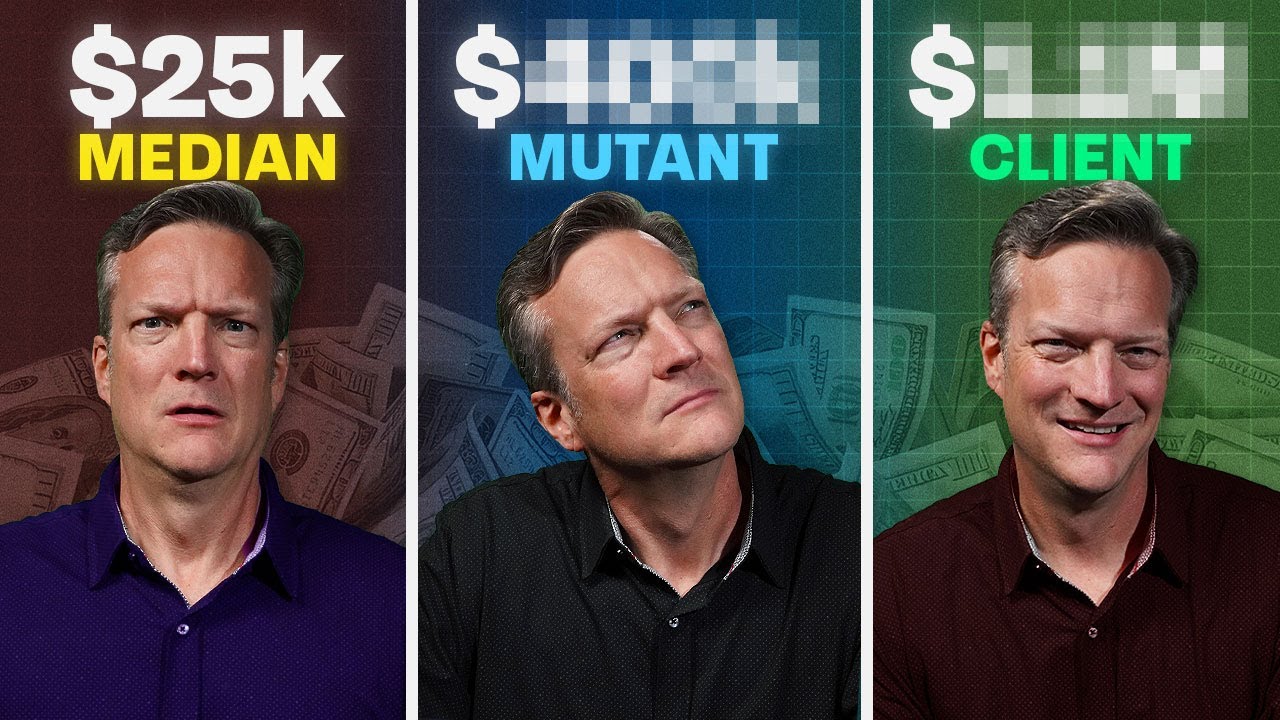If you’re thinking about this, all right, I’m in the messy middle, I’ve got to give myself grace. I’m going to stick to the Financial Order of Operations. Well, then I also have to make sure that I stay inside the guardrails because I think so often what happens is, in that messy middle, it’s not all hard, difficult, bad things going negative. Some of it can be, “I’ve got a new job, I got a promotion,” and all of a sudden there is pressure and an availability to do stuff like go out and upgrade the house, go on the nicer vacation, and there are some big mistakes that you can make in there. So, it’s important to understand what those guardrails are and where they exist.
Well, we’ve already discussed that the two things that create the messy middle are a lack of money and a lack of time. So, we wanted to break this and start talking about guardrails and solutions. Let’s focus on the money first, and then we’ll close it out kind of focusing on what are the solutions in time. And the first thing we want to talk about with money is how do you avoid the big financial mistakes. And we’re thinking about the big mistakes; there are two that sort of immediately come to mind. One is failing to plan. If you’re like, you know, this always came up when I was a child, it said, “Failing to plan is planning to fail.” Oh yeah, these are those folks who don’t actually save up a little bit of today for the unknown tomorrow. You don’t have the emergency fund in place; you don’t have the thousand covered. I mean, we know that 60% of Americans right now in this country could not come up with $1,000 tomorrow. That is a problem. So, you want to make sure that you have emergency reserves in place.
And then the other thing, Brian, you mentioned this with social media, is that we see so many people faking their lives. They don’t actually have anything; they run up credit card debt. They start doing those sorts of things to subsidize a lifestyle that’s not really the lifestyle they ought to be living. We all know credit card leaning too heavily into the credit card too early is catastrophic. I mean, it makes me sad for our country when I see we have over a trillion dollars of credit card debt. I know the average interest rate on credit card debt is now well past 20%—insane. It is impossible to get ahead if you’re leaning on credit card debt. So, I’m just telling you don’t go to that bridge to nowhere. We’re not against credit card use, but we are 100% firm that it is a binary decision that you can have zero credit card debt to have success over the long term. Don’t fall into that trap, no matter how good or how temporary you think your stay in that Hotel California will be.
I love it, and so we’re talking about avoiding the big mistakes like not having an emergency fund, running up credit card debt, big purchases like cars. I think another thing, and this is so poignant right now based on where we are in our economic cycle, is that I think if you want to make the most of your money in the messy middle, you need to wait to buy a house or wait to make that next home purchase until you can actually afford it. I think there’s so much pressure out there, again, people that love checking the boxes, moving in the checklists. They think, “Okay, I did this; I gotta go buy a house. I’m this age; I gotta go buy a house.” While that may or may not be true for your situation, you want to make sure you can do it when it actually makes sense to do it so that you don’t get out over your skis and set yourself up for a rude awakening.
We get asked a lot of questions about real estate, and we do have the buying a house rules. Just to kind of quickly review those is that make sure you can live in this house for 7 years. You’ve got to make sure you put down 20% on your second and any upgraded houses, but your first house, we’re okay if you get in there for 3 to 5%, just to get in on the home equity train. And then we want your monthly cost to be below 25% of your gross income. But the thing I think about with housing is that we had such a run-up during the pandemic because I think so many interest rates were low, everybody was focusing on that they had to be in a house. So, it just created some weird distortions, and over time, I don’t know, and also, geography makes a lot of location, location, location. That’s why I would tell people go to money.com resources. Not only do we have the housing rules, we have the checklist for you to go through, and it’s going to really go into the details of how location matters, how long you can be there because I worry with the compression of the returns. I mean, houses are not typically going to make 50, 60% over a 3 to 4-year period; it’s going to compress. What’s going to happen in real estate going forward, that reversion to the mean is real. So, I don’t want people getting out in a hurry to go run out there without at least doing their homework to understand the house buying rules as well as going through our checklist to make sure you don’t get caught up in the moment and feel like the clock and the buzzer is going to ring against you when maybe you just need to kind of evaluate, analyze, and then measure twice to get the right housing purchase or rent decision for your situation. For more information, check out our free resources.













